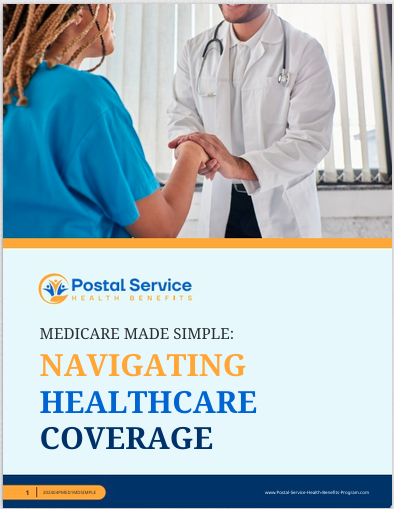Key Takeaways
-
Copayment rates vary depending on the type of medical service and the nature of the visit, reflecting differences in cost and care delivery.
-
Understanding these differences can help you make informed decisions when accessing healthcare services.
What Determines Copayment Rates?
When you visit a doctor or healthcare facility, your copayment, or “copay,” is the fixed amount you pay out of pocket for services covered by your health plan. These rates aren’t arbitrary; they depend on several factors designed to balance cost-sharing between you and the insurance provider. The three main categories of care where copays vary significantly are primary care, specialist visits, and urgent care.
Let’s break down the reasons for these differences so you can better navigate your healthcare options.
The Role of Primary Care
Why Primary Care Visits Cost Less
Primary care visits generally have the lowest copayment rates. These visits are your gateway to the healthcare system and focus on preventive care, routine check-ups, and managing chronic conditions. By making primary care affordable, health plans encourage you to seek care early, preventing more severe and costly conditions down the road.
What’s Covered During a Primary Care Visit?
When you visit a primary care provider, typical services include:
-
Routine check-ups and physical exams.
-
Management of chronic conditions like diabetes or high blood pressure.
-
Basic diagnostic tests and screenings.
-
Vaccinations.
These services are essential for maintaining overall health and addressing issues before they become serious. By lowering financial barriers, health plans aim to promote regular visits to your primary care provider.
Specialist Visits: Why Higher Copayments?
The Cost of Specialized Expertise
Specialist visits often come with higher copayments. Specialists provide targeted care for specific medical conditions, requiring advanced training and expertise. Examples include cardiologists, dermatologists, and orthopedic surgeons. Their services are more specialized, often involving in-depth diagnostic tests, complex procedures, or advanced treatments.
How Specialist Visits Differ
Here’s what makes specialist visits distinct:
-
Referral Requirements: Some health plans require you to get a referral from your primary care provider before seeing a specialist.
-
Advanced Procedures: Specialists frequently use sophisticated diagnostic tools or perform procedures that primary care providers don’t offer.
-
Limited Availability: Specialist appointments might take longer to schedule due to high demand and fewer practitioners in certain areas.
The higher copayments reflect these added costs and complexities.
Urgent Care: Balancing Convenience and Cost
Why Urgent Care Is More Affordable Than Emergency Care
Urgent care centers fill the gap between primary care and emergency services. Copayments for urgent care are typically lower than emergency room visits but higher than primary care visits. These centers are designed for non-life-threatening issues requiring prompt attention, such as minor injuries, infections, or flu symptoms.
Urgent care facilities help reduce the burden on emergency rooms, which are costly and intended for life-threatening situations. By keeping copayments moderate, health plans encourage you to choose urgent care when appropriate, ensuring that emergency rooms remain available for true emergencies.
What to Expect During an Urgent Care Visit
Common services at urgent care centers include:
-
Treatment for minor cuts, burns, or sprains.
-
Diagnostic tests like X-rays.
-
Immediate care for illnesses such as strep throat or the flu.
The convenience of walk-in appointments and extended hours makes urgent care an attractive option, and the copayments reflect this middle ground between cost and accessibility.
Factors Influencing Copayment Differences
Complexity of Care
The level of care complexity directly affects copayment rates. Primary care visits are simpler and involve routine assessments, while specialist and urgent care visits often require advanced diagnostics or treatments, leading to higher costs.
Provider Training and Expertise
Primary care providers offer broad, general care, whereas specialists undergo years of additional training to focus on specific medical fields. This added expertise justifies the higher copayments for specialist visits.
Facility Costs
The type of facility you visit also plays a role. Urgent care centers and primary care offices have lower overhead costs compared to hospitals or specialized clinics, which is reflected in their copayment structures.
Encouraging Cost-Effective Choices
Insurance plans are designed to guide you toward cost-effective care. Lower copayments for primary and urgent care encourage their use over emergency room visits or unnecessary specialist consultations.
When Should You Opt for Each Type of Care?
Primary Care: Routine and Preventive Needs
Always start with your primary care provider for routine check-ups, preventive care, and chronic condition management. These visits are cost-effective and provide continuity of care.
Specialist Care: Targeted Expertise
Seek a specialist if you’re dealing with a condition that requires focused expertise, such as a heart problem or a skin disorder. Remember to check if your health plan requires a referral to avoid unexpected costs.
Urgent Care: Immediate but Non-Emergency Needs
Visit urgent care when you need prompt attention for non-life-threatening issues, such as minor injuries or sudden illnesses. It’s a cost-effective alternative to the emergency room.
How to Reduce Out-of-Pocket Costs
Stay In-Network
Using in-network providers ensures you pay the lowest possible copayments. Out-of-network visits often come with significantly higher costs.
Schedule Preventive Care
Take advantage of preventive care services, which are often covered with little to no out-of-pocket cost. Regular check-ups can catch issues early, reducing the need for costly treatments.
Use Telehealth Services
Many health plans offer telehealth options for primary care and even some specialist consultations. Telehealth visits often come with reduced copayments and added convenience.
Know Your Plan’s Rules
Understanding your health plan’s guidelines can help you avoid unnecessary costs. For instance, know when a referral is required or whether pre-authorization is needed for certain services.
Why Understanding Copayments Matters
Understanding why copayment rates differ empowers you to make informed choices about your healthcare. By selecting the right type of care for your needs, you can save money and ensure you’re receiving appropriate treatment.
Healthcare costs can be a significant part of your budget, especially for USPS workers and retirees who may be managing fixed incomes. Knowing how copayments work helps you plan effectively and prioritize your health without breaking the bank.
Manage Your Healthcare Wisely
Navigating copayment rates might seem daunting at first, but with a bit of knowledge and planning, you can take full advantage of your health benefits. By understanding the costs associated with primary care, specialists, and urgent care visits, you’re better equipped to make decisions that align with both your health needs and financial goals.






